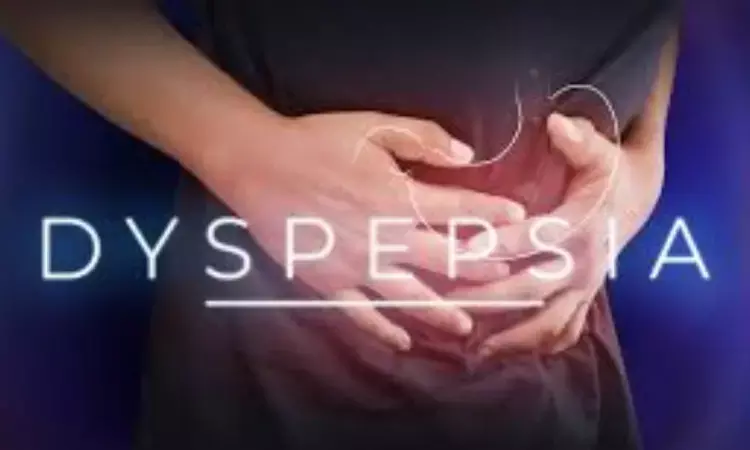- Home
- Medical news & Guidelines
- Anesthesiology
- Cardiology and CTVS
- Critical Care
- Dentistry
- Dermatology
- Diabetes and Endocrinology
- ENT
- Gastroenterology
- Medicine
- Nephrology
- Neurology
- Obstretics-Gynaecology
- Oncology
- Ophthalmology
- Orthopaedics
- Pediatrics-Neonatology
- Psychiatry
- Pulmonology
- Radiology
- Surgery
- Urology
- Laboratory Medicine
- Diet
- Nursing
- Paramedical
- Physiotherapy
- Health news
- Fact Check
- Bone Health Fact Check
- Brain Health Fact Check
- Cancer Related Fact Check
- Child Care Fact Check
- Dental and oral health fact check
- Diabetes and metabolic health fact check
- Diet and Nutrition Fact Check
- Eye and ENT Care Fact Check
- Fitness fact check
- Gut health fact check
- Heart health fact check
- Kidney health fact check
- Medical education fact check
- Men's health fact check
- Respiratory fact check
- Skin and hair care fact check
- Vaccine and Immunization fact check
- Women's health fact check
- AYUSH
- State News
- Andaman and Nicobar Islands
- Andhra Pradesh
- Arunachal Pradesh
- Assam
- Bihar
- Chandigarh
- Chattisgarh
- Dadra and Nagar Haveli
- Daman and Diu
- Delhi
- Goa
- Gujarat
- Haryana
- Himachal Pradesh
- Jammu & Kashmir
- Jharkhand
- Karnataka
- Kerala
- Ladakh
- Lakshadweep
- Madhya Pradesh
- Maharashtra
- Manipur
- Meghalaya
- Mizoram
- Nagaland
- Odisha
- Puducherry
- Punjab
- Rajasthan
- Sikkim
- Tamil Nadu
- Telangana
- Tripura
- Uttar Pradesh
- Uttrakhand
- West Bengal
- Medical Education
- Industry
H. pylori eradication therapy helpful for controlling functional dyspepsia: Study

Leeds, UK: High-quality evidence suggests that Helicobacter pylori eradication therapy both cures and improves symptoms of functional dyspepsia (FD), although the benefit is modest, reveals a recent study. The study appears in the BMJ journal Gut.
Functional dyspepsia (FD) is a chronic disorder that is not easy to treat. H. pylori may be a contributor to its pathophysiology. A Cochrane review performed in 2006 had suggested that eradication therapy is beneficial, but since then numerous randomized controlled trials (RCTs) have been published. Alexander C Ford, Leeds Gastroenterology Institute, Leeds Teaching Hospitals NHS Trust, Leeds, UK, and colleagues, therefore, aimed to evaluate the impact of eradication therapy on both cure and improvement of FD, as well as whether any benefit was likely to arise from the eradication of H. pylori.
For this purpose, the researchers searched the medical literature through October 2021 to identify RCTs examining the efficacy of eradication therapy in H. pylori-positive adults with FD. Those in the control group received antisecretory therapy or prokinetics, with or without placebo antibiotics, or placebo alone. Follow-up was for ≥3 months.
Dichotomous data were pooled to obtain a relative risk (RR) of symptoms not being cured or symptoms not improving. Also, the number needed to treat (NNT) was estimated.
Twenty-nine RCTs recruited 6781 H. pylori-positive patients with FD.
Based on the study, the researchers found the following:
- Eradication therapy was superior to control for symptom cure (RR of symptoms not being cured=0.91 to 0.94, NNT=14) and improvement (RR of symptoms not improving=0.84, NNT=9).
- There was no significant correlation between eradication rate and RR of FD improving or being cured (Pearson correlation coefficient=−0.23), but the effect was larger in patients with successful eradication of H. pylori than with unsuccessful eradication (RR=0.65, NNT=4.5).
- Adverse events (RR=2.19) and adverse events leading to withdrawal (RR=2.60) were more common with eradication therapy.
To conclude, there is high quality evidence to suggest that H. pylori eradication therapy leads to both cure and improvement in FD symptoms, although the benefit is modest.
Reference:
Ford AC, Tsipotis E, Yuan Y, et alEfficacy of Helicobacter pylori eradication therapy for functional dyspepsia: updated systematic review and meta-analysisGut Published Online First: 12 January 2022. doi: 10.1136/gutjnl-2021-326583
Dr Kamal Kant Kohli-MBBS, DTCD- a chest specialist with more than 30 years of practice and a flair for writing clinical articles, Dr Kamal Kant Kohli joined Medical Dialogues as a Chief Editor of Medical News. Besides writing articles, as an editor, he proofreads and verifies all the medical content published on Medical Dialogues including those coming from journals, studies,medical conferences,guidelines etc. Email: drkohli@medicaldialogues.in. Contact no. 011-43720751


